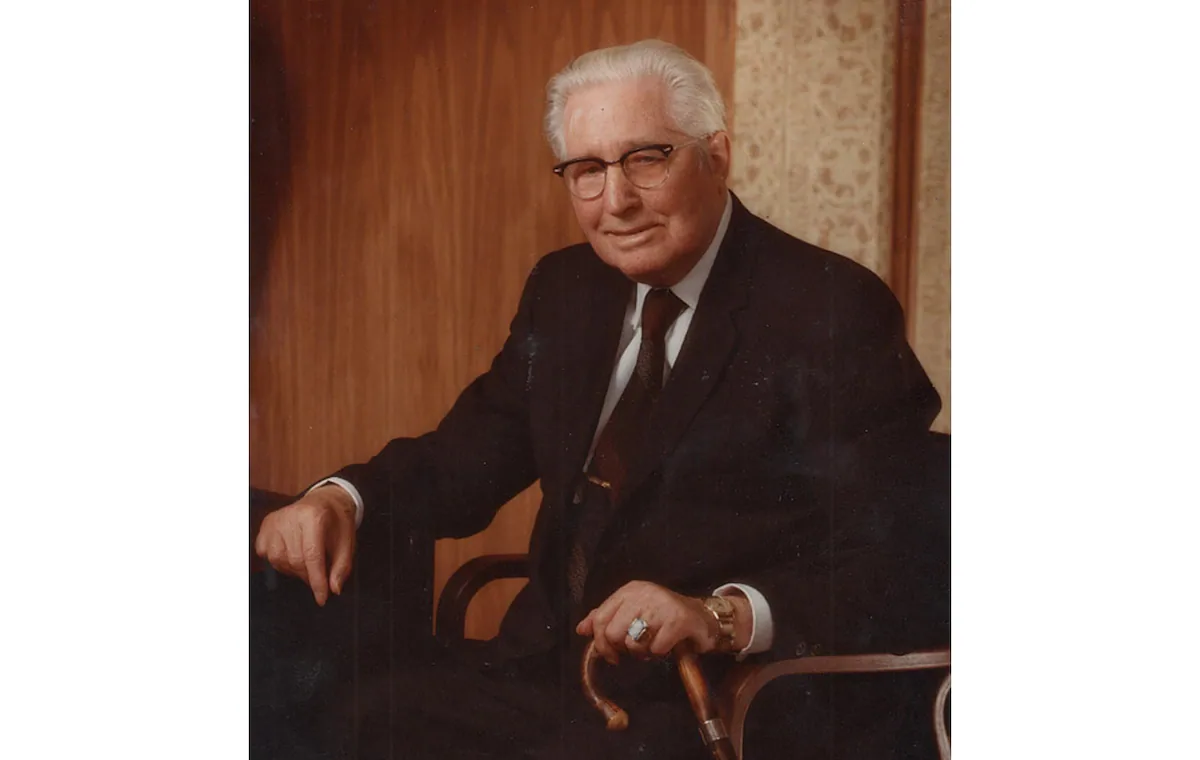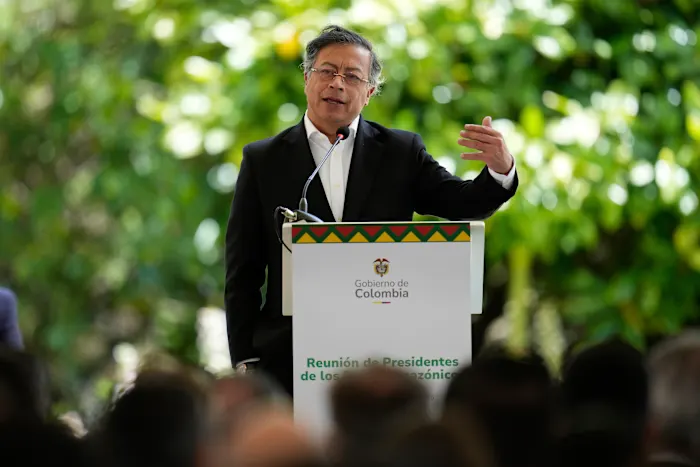
As a member of the governing First Presidency of The Church of Jesus Christ of Latter-day Saints, apostle Hugh B. Brown took pride knowing that he was different from his fellow general authorities. He was an outsider — a Canadian and a liberal Democrat in a church hierarchy dominated by conservative Republicans from the American West.
“I am a rebel,” Brown once boasted to his friends.
When Brown moved with his family from Canada to Utah in 1927, he wasn’t sure whether he should be a Democrat or a Republican. Needing advice, he asked then-church President Heber J. Grant — a Democrat — which party to join and the president told him to join his party. He asked the same question of Grant’s counselor Anthony Ivins, also a Democrat. Join the Democratic Party, they said, adding that if Brown wanted to “be in touch with the wealth of the nation,” he should “become a Republican.”
Brown joined the Democratic Party during a precarious time in U.S. history. Amid immigration quotas, Jim Crow segregation, rising business monopolies and a stock market crash that convulsed global economies, he believed that Democrats had “the right philosophy” to combat these shocking injustices. Average Americans, especially farmers and factory workers, he said, should have the same basic rights and opportunities as wealthy Americans, which was a central tenet of the Democratic Party.
But Brown wasn’t just a Democrat in name; he plunged himself into party politics during the 1930s when Americans were in the throes of the Great Depression. Brown admired President Franklin D. Roosevelt’s pragmatism in confronting human suffering. FDR’s government relief and jobs programs to blunt unemployment and family hardship inspired Brown to challenge Democratic incumbent Utah Sen. William King in the 1934 primary. King wasn’t doing enough, Brown insisted, to support New Deal programs.
While Brown’s intentions were laudable, he didn’t have the name recognition or the fundraising chest that King had and therefore lost in the primaries. After his defeat, he went to work as legal counsel for the Home Owner’s Loan Corp., a signature New Deal program, that helped impoverished Utahns. Brown saved countless families from losing their homes to foreclosure, which drew the notice of party officials. Calvin Rawlins, the Utah Democratic Party chair, enthusiastically praised Brown for assisting “the people who were in need and people who were losing their homes.” Later, Brown replaced Rawlins as the Democratic Party chair and developed a close friendship with FDR. According to Brown family lore, FDR praised Brown as the most accomplished public speaker he had ever heard, second only to British Prime Minister Winston Churchill.
A ‘minority of one’
Whatever political ambitions Brown may have had changed drastically when then-church President David O. McKay called him into the Quorum of the Twelve Apostles in 1958 and then to the First Presidency in 1961. Now his political involvement became secondary to his full-time church ministry. Nevertheless, Brown wasn’t silent about his liberal politics, and they became a source of discussion and dissension among his conservative colleagues. After First Presidency counselor and fellow Democrat Henry D. Moyle died in 1963, Brown was the only Democrat in high church leadership, making him, as he put it, a “minority of one.”
Such a position caused Brown intense grief throughout his ministry. Brown was forced to confront apostles like Harold B. Lee, who alleged that “liberals are apostates,” and Ezra Taft Benson, who believed that liberals were paving the road to communism. Benson proved particularly difficult to deal with in that he was influenced by right-wing talk radio and the John Birch Society, an anti-communist fringe group. Equally challenging, he assailed labor unions, welfare programs and the Democratic Party, calling them precursors to communism.
Brown, a proud man, did not let Benson’s blustery rhetoric go unchallenged. He took Benson’s criticisms as a personal attack and chastised his apostolic colleague. The two men traded barbs in letters and over the pulpit, culminating in Benson telling Latter-day Saints in the faith’s General Conference that there were “traitors” in the church — a not-so-subtle reference to Brown.
As Brown and Benson tussled over politics, the church, meanwhile, was drifting rightward, mirroring trends in the nation at large. Whereas Utahns supported liberal Democratic presidents in the post-World War II decades — FDR, Harry Truman, John F. Kennedy and Lyndon B. Johnson — their support for the Democratic Party began to erode by the late 1960s, when they went for Republican Richard Nixon in the 1968 presidential election. A number of factors accounted for this. The Civil Rights Movement, women’s reproductive rights and the Equal Rights Amendment nudged Latter-day Saints into following the same path as evangelicals and fundamentalists in rejecting the Democratic Party.
As the church began to shift, Brown did his best to counter it. By 1963, he began promoting liberal government programs to Latter-day Saints. He proposed that BYU support the Peace Corps, which helped developing nations by offering volunteer workers to assist with health care, education and community projects. The church school was “the only university in the country that has refused to allow the Peace Corps to recruit on its campus,” Brown told the board of trustees in 1965. Then-Brigham Young University President Ernest Wilkinson, with whom Brown frequently clashed, was one of the strongest voices opposing such a move. Wilkinson said that the church “had a peace corps of its own” and argued that the church’s missionary program was “far more effective than the government program.”
From the New Deal to the Great Society
After President Kennedy’s assassination in 1963, Brown enthusiastically backed JFK’s successor, Johnson, whose programs reaffirmed and expanded the New Deal. The Great Society promoted myriad poverty and racial justice programs designed to aid vulnerable Americans. Its cornerstones included Medicaid, Medicare, expanded Social Security benefits, the Civil Rights Act of 1964 and Voting Rights Act of 1965. A lesser-known cornerstone was the Immigration Act of 1965.
Brown heartily praised Johnson’s domestic agenda. In a revealing letter only months before the 1968 presidential election, Brown assured Johnson of his “continued support” and “sincerest good wishes.” He told the president that he felt “confident that the people of the United States will reward your unwavering devotion to right by asking you to lead us for another term.”
Brown was either naive or hopelessly optimistic regarding Johnson’s reelection prospects because polling suggested that the president had little chance of winning. Vietnam War fatigue, coupled with Johnson’s mendacity deceiving Americans about troop buildup, doomed his chances for a second full term. And yet, even though Brown miscalculated badly, he assured Latter-day Saints that Johnson was a great president. When a Latter-day Saint complained that Johnson’s programs were leading the country to socialism, Brown assured this individual that “the government was in good hands.” After hearing from another Latter-day Saint that “our government was going to pot” and “that the country was being overrun by communists,” Brown coolly replied that such charges were “nauseating, wholly untrue, and unworthy of our support.”
Brown was just as energetic in championing civil rights bills. With the Civil Rights Act of 1964, which outlawed racial segregation in public accommodations, and the Voting Rights Act of 1965, which made it easier for African Americans to vote, Johnson set the nation on a new path of racial justice. This energized Brown. In 1963, two months after Martin Luther King’s “I Have a Dream” speech, Brown read a statement in General Conference endorsing civil rights.
Challenging his fellow apostles
Brown’s most audacious move, however, occurred in 1969 when, acting on his own, he persuaded President McKay to ordain a Black man despite the church’s then-existing prohibition on men of African descent holding the priesthood and men and women from entering temples. When apostle Harold B. Lee got word of it, he scuttled the plan. This, in turn, prompted Brown to break protocol and inform the press that he believed the ban would soon end.
Brown created further controversy when he told Latter-day Saints that those who believe they have “special merit because of color, race or belief” harked to a “dangerous fallacy.” For Brown, racial hierarchies contradicted scripture, and none more so than in the Book of Mormon when it affirms that “all are alike unto God.” People should not believe, he said emphatically, “that they are inherently superior and loved by God. God loves all races and colors equally.” This striking statement was directed toward conservative apostle Joseph Fielding Smith and his son-in-law Bruce R. McConkie, both prolific writers, who affirmed that God had “favored lineages.”
Finally, Brown supported the Immigration Act of 1965, which shattered racial quotas and opened up new pathways to citizenship for immigrants. Here again, Brown took issue with Joseph Fielding Smith, who asserted that the Immigration Act of 1924, which called for racial quotas, should remain untouched because it restricted certain kinds of immigrants from entering the country — people he referred to as “inferior stock.”
For Brown, a deeply spiritual man, the United States was a divinely chosen land that God blessed with abundant resources. The country and its citizens had a divine mandate to use those resources to better the lives of immigrants, who were fleeing corruption and poverty.
Although Brown expressed his politics strongly and emphatically, he never crusaded like Benson, nor did he try to persuade Latter-day Saints to become liberals. He respected their agency and took offense only when Benson and the Birchers tried to foist their views on the faith, or make false claims that the church sanctioned their right-wing politics.
Brown had a healthy respect for the two-party system and counseled Latter-day Saints to work within that system to promote better policy outcomes. He also had a healthy respect for what government could and should do in our lives, how it could use its power to combat social ills that debilitated families and plagued communities. He once told BYU students, “We are not so much concerned with whether your thoughts are orthodox or heterodox as we are that you shall have thoughts,” which accurately depicts how Brown lived his life. He was aware that his thoughts, as heterodox as they were, collided with a church hierarchy that ostensibly accepted Benson’s conservative principles more than his liberal ones. In 1970, when McKay died, he learned just how unappreciated his politics were when Joseph Fielding Smith, the incoming church president, dropped him from the First Presidency.
Whatever discouragement Brown faced from his sudden ouster, whatever frustrations he felt with the church’s rightward drift, his faith remained intact. Although he didn’t live long enough to see the fruits of his work, his efforts were not in vain. Brown helped to shape the political landscape of the modern church in ways that might not be obvious. First, he taught that being a liberal and a Democrat was wholly compatible with Latter-day Saint theology. Second, Brown’s vigorous opposition to the priesthood and temple ban led then-church President Spencer W. Kimball to lift it 1978. Next, Brown’s relentless pushback of Benson’s right-wing politics prompted later church presidents such as Kimball, Gordon B. Hinckley and Russell M. Nelson to caution against political extremism and reinforce the virtues of a two-party system.
Latter-day Saints may not remember Hugh Brown today, but his message endures. His life and ministry offer a road map of how to entwine liberal values with church teachings.
I’m confident that if he were alive today, he would support immigrants, promote civil rights and decry the dismantling of safety net programs that rescue families from hardship and poverty.
I hope church leaders will follow his example.
We need more rebels like Hugh Brown.



